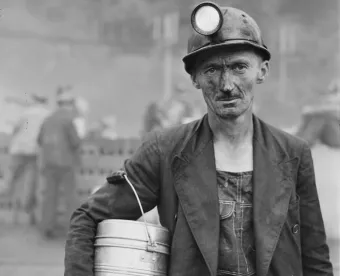Now that the hustle and bustle of the holidays is behind us, mine operators across the country are looking for practical and cost-efficient ways to improve and protect their mining operations in the New Year. The following resolutions can help mine operators achieve a safe, healthful and productive 2017.
First, mine operators should commit to training its employees, particularly its management-level employees, on Section 105(c) of the Mine Act. Section 105(c) was designed to encourage miners to actively voice concerns or complaints about mine safety and health while protecting them against possible discrimination which they might encounter as a result of voicing such concerns. Section 105(c) claims can be costly, disruptive, and time consuming and are regularly being filed against mine operators. Unfortunately, many management-level employees are either unfamiliar with Section 105(c) or do not know what steps they should take in response to a miner’s concerns or complaints about mine safety and health. As such, mine operators would benefit from training those employees on Section 105(c), the types of activities that are protected under the Mine Act, and appropriate ways to respond to a miner’s safety or health concerns or complaints. Further, mine operators should commit to adopting and implementing an anti-discrimination policy devoted to Section 105(c) that provides examples of both activities protected and discriminatory acts prohibited under the Mine Act. While many operators already have anti-discrimination policies in place, few are devoted specifically to Section 105(c). Additionally, mine operators should commit to regular and consistent enforcement of company disciplinary policies to avoid any allegations of disparate treatment in Section 105(c) claims.
Second, mine operators should commit to an increased emphasis on regular workplace examinations and prompt abatement of conditions found during those examinations. Regular examinations of the workplace are without question a necessary and invaluable tool to ensure a safe and healthy work environment. In recent years, through both regulatory efforts and inspections of mines, MSHA has placed an increased emphasis on workplace examinations, particularly in the metal/nonmetal industry. Mine operators would benefit from also emphasizing workplace examinations and ensuring that their workplace examiners are familiar with applicable examination requirements and are able to recognize conditions that may adversely affect safety and health. Mine operators should also commit to ensuring that their examiners have the authority and the resources necessary to promptly initiate corrective action for any conditions found during their examinations.
Third, mine operators should commit to an increased emphasis on regular safety meetings. Regular communication with employees is an invaluable tool that can help achieve a safe and healthy work environment. Operators should commit to discussing with their employees conditions found during workplace examinations during the regular work day and discuss ways to prevent those conditions from developing. Mine operators should also be open to any suggestions made during safety meetings by employees for ways to improve safety and health. Safety meetings not only benefit the operator’s workplace examiners by making them aware of potential conditions to be looking for but may also help avoid enforcement actions issued during a mine inspection.
Fourth, mine operators should commit to designating a particular employee – perhaps a safety representative – to analyze recently issued case law decisions by the Federal Mine Safety and Health Review Commission and its Administrative Law Judges and to report on noteworthy decisions applicable to their particular industry during safety meetings. Case law decisions can provide guidance to mine operators on how MSHA interprets certain regulations and industry practices. This cost-free effort may not only help employees better understand regulations applicable to their particular industry but may also help operators understand how inspectors and judges view certain practices and conditions.
Fifth, mine operators should commit to ensuring that their employees are familiar with Part 50 requirements. Like Section 105(c), many employees are unfamiliar with Part 50 requirements. As such, mine operators should ensure that employees are familiar with Part 50 and the types of incidents that qualify as reportable accidents, injuries or illnesses. Employees should also be familiar with Part 50 reporting requirements and the types of reports that must be completed after a workplace accident. Additionally, mine operators should commit to regular audits of their Part 50 records as MSHA often inspects these records not only during routine inspections, but during the course of special investigations.
Finally, in order to comply with MSHA laws and regulations, mine operators should encourage familiarity with MSHA enforcement among employees and particularly management-level employees. The Mine Act and MSHA’s regulations are overwhelming and it is unrealistic to assume that employees will become experts on MSHA’s enforcement arsenal. However, operators can help curtail enforcement actions – and the rising tide of MSHA special investigations – by studying and discussing MSHA’s top twenty list of citations, MSHA’s Rules to Live By, their operation’s regulatory history, and selected hot button issues under Mine Act.



 />i
/>i
